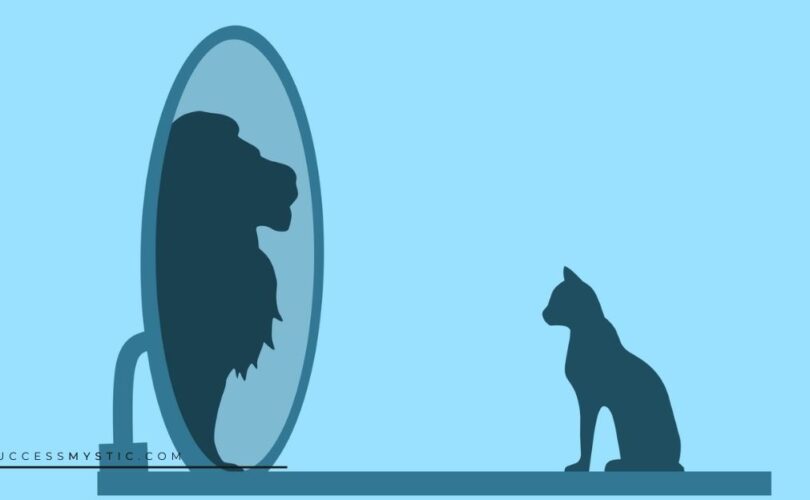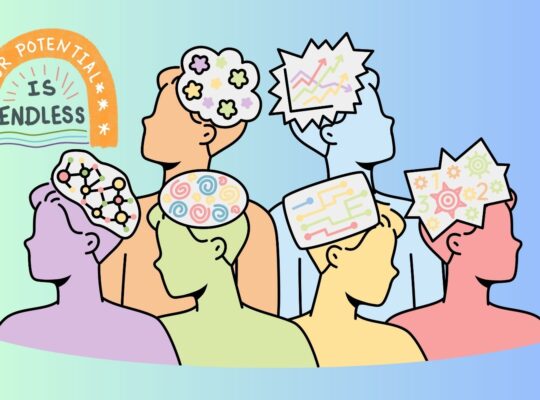Confidence is an essential tool to have in your stockpile of personal traits. With confidence, you can propel yourself forward positively and excitedly into any of life’s situations.
Everyone experiences moments where they don’t feel very confident. Whether they’re plagued by a fleeting insecurity or feel a moment of weakness when faced with a new or unfamiliar challenge, a moment of wavering confidence is totally normal and usually passes with some time.
However, some people experience a lack of confidence. This creates a hindrance in many areas of life. Confidence is needed to advance in nearly every aspect of life, including relationships and careers.
If you’re concerned that a lack of confidence may be interfering with your life, you can learn how to increase your confidence. Consider the following twenty five key characteristics of confident people to better understand how confidence presents itself in a variety of people–while not every confident person is exactly the same, they share some common traits you can learn to adapt for yourself!
25 Characteristics Of Confident People
1| Confident people understand the power of asking.
Some people shy away at the idea of asking for something. However, when you don’t ask, you don’t receive–confident people know that asking questions is a powerful tool to get what you want and need!
Confident folks understand that the worst thing that could happen when asking someone a question or for something is getting a “no” response. Often, when you ask for something, you want or need outright, you’ll be surprised to learn that the answer is often “yes”! If you don’t ask, you don’t know.
Confidence is the key to making sure you’re asking for what you want and need, and this characteristic often presents itself as being inquisitive and asking lots of questions. Besides getting goods and services, asking questions also ensures that a confident person has all the information they need.
Confidence is fueled by knowing–a confident person can act with certainty when they have the information, they need to make a good decision. If you are wondering if someone has a lot of confidence, take note of how often they ask questions–it is often a telling sign!
2| Confident people don’t feel the need to get approval or validation from others.
Validation is a great feeling. It’s nice to know that we’re acting in a way that pleases others or that we’re doing a good job. While validation is satisfying, confident people don’t feel a need to get it from other people. A confident person doesn’t seek approval from others (or let others’ criticisms get in the way of what they want to do or how they want to do it).
Confident people don’t actively seek approval or validation from others. Instead, they focus on what they’re doing, recognize their own wins, and use their successes to continue moving forward. While a compliment or shout-out from another person is nice, confident folks don’t need this type of feedback to function.
3| Confident people are great listeners.
Rather than taking every chance they have to speak, confident people prefer to listen. In fact, confident people are usually excellent, observant listeners. Confident people tend to follow an 80/20 model of listening and speaking, meaning that they prefer to listen 80% of the time and only speak 20% of the time, reserving their own spoken words for when they are well-planned and ready to be spoken out loud.
When they spend more time listening to others and contemplating what they hear, the times they do speak reflect their confidence because they’ve had time to consider what they’ve learned and form reflective, articulated, and considered thoughts before sharing, making a big impact on others.
Because they practice regular, active listening, confident people learn a lot about other people and the world around them. Confidence often comes from this well of knowledge, and because confident people gather so much data from observing and listening, they can form strong, educated opinions, and make informed decisions soundly. This may even make you wonder if the person is truly confident–they aren’t being shy and quiet, they’re just listening and focusing!
4| Confident people harbor a wealth of internal happiness.
This confidence characteristic circles back to the idea of not needing approval or validation from others. Rather than depending on other people for happiness, confident people retain quite a bit of internal happiness.
Being able to remind themselves of reasons to be happy (and being able to spark that internal sense of happiness and contentment) plays a big role in confidence. A confident person rarely lets other people control their happiness–instead, they do what is needed to make themselves experience regular happiness and contentment.
To make the process of “choosing happiness” easier, confident people regularly participate in activities that spark joy in their lives–their self-care routines are loaded with practices and hobbies that bring them lots of peace.
5| Confident people put a lot of value in saying “yes.”
Acting with confidence requires some level of certainty. Before a confident person feels comfortable enough to say yes to anything, they’ll spend ample time contemplating their choices, weighing different outcomes, and visualizing different possibilities. If a confident person doesn’t feel good about saying yes to something or getting themselves involved with a project, they won’t do it.
This characteristic is recognizable in a confident person by the number of times they agree to commit to something–because they put such a high value in agreeing, you know they’ve said “yes” to something only after lots of careful thought and consideration.
Confident people like to put their trust into something they feel good about–when you see a confident person dole out an often elusive “yes” to something, pay attention to their decision. They’ve likely said yes to an excellent opportunity or idea!
6| Confident people use language that communicates certainty.
Pay special attention to the types of words confident people use to communicate their thoughts, ideas, and feelings. Their confidence is evident in the word choice they use. Confident people convey their certainty by using matter of fact and to-the-point language.
For example, a confident person may use phrases such as “I know” or “I’m certain” to express their thoughts. Someone with less confidence may hesitate, pause, or use phrases such as “I guess” or “Maybe” to express their thoughts. Typically, confident people don’t share a lot of information until they feel certain about it; this is directly reflected in the language they use to communicate that information to others.
7| Confident people keep a tight watch on their overall wellbeing.
Keeping an eye on personal wellness and health is a major focal point for confident folks. In order to perform well and feel their best, confident people maintain healthy routines to make sure they’re always feeling good. For example, some of these routines include:
- Taking a sick day from work when they realize they don’t feel good and need to recover.
- Going to all their regularly scheduled medical appointments, such as check-ups and dental screenings.
- Getting regular exercise.
- Eating fresh, healthy, and nutritious foods.
- Practicing self-care activities, they enjoy.
- Resting when they need to take a break.
- Saying “no” to a situation that could put their health in harm’s way.
In order to live life confidently, maintaining personal health and wellness is crucial. It’s tough to feel confident and in-control if your own well-being is struggling. Confident people don’t feel shame in putting their health needs first–it’s a crucial part of being confident in other areas of life!
8| Confident people understand the importance of admitting to a mistake.
Nobody’s perfect and mistakes are going to happen to everyone–including the confident crowd. No matter how poised and perfect a person may appear, they’re going to make a mistake at some point or another.
Rather than feeling extreme shame or embarrassment over making a mistake, confident people are quick to admit that they made an error. Rather than feeling embarrassed or trying to hide their mistakes, confident people will go ahead and admit they were wrong. In the end, a confident person knows this is the best way to build trust with other people and work toward correcting the error.
9| Confident people understand the value of a good risk-taking opportunity.
Sometimes, risks are just plain dangerous–but there are some risky opportunities in life with big payouts. Confident people understand that some risks come with high value, and when they take these types of risks, they put themselves in the position to reach goals and achieve big in life.
For example, a confident person may feel compelled to apply for a big promotional opportunity at work. It’s a risk–they could end up doing all that work and not end up getting the promotion–but the confident person also knows that if they don’t apply or try, they won’t have any chance to earn the promotion at all.
Either way, the confident person knows getting into a good risk-taking opportunity has benefits: If they succeed, they’ll get what they wanted, and if they don’t succeed, they learned from the experience and can apply that knowledge to a future venture.
10| Confident people take time to celebrate their wins–even the small ones.
Confident people know that staying motivated is key to feeling successful and keeping their confidence levels adequately supported. They don’t let any of their wins go unrecognized, whether they’re big or small.
This doesn’t mean that confident people like to gloat or brag about the good things they do or accomplish. Instead, it means they will accept their credit. They allow themselves to feel pride and happiness when they achieve something–they know that the feeling of satisfaction they get from their wins are important motivators needed to keep up the good work.
11| Confident people aren’t scared to reach out when they need help.
Unfortunately, many people view asking others for help as a sign of weakness. Confident people know this is quite far from the truth!
A confident person doesn’t see any shame in needing to ask for help. Their confidence allows them to see when they’re in over their heads or heading into unfamiliar territory where they need someone’s help or advice to navigate it. Instead of allowing asking for help to make them feel weak, confident people see asking for help as a valuable resource. They value others’ expertise and guidance because they know it’s the tool, they need to accomplish a task, learn something new, and move forward.
12| Confident people accept themselves for who they are.
Confident people are self-accepting. They don’t allow themselves to be plagued by insecurities and accept themselves entirely for who they are.
This characteristic often baffles others: How can a person be confident if they don’t have society’s ideal body shape? How can a person be confident if they aren’t the smartest person in the room? How can a person be confident if they’re trying something new for the first time?
The answer is simple. Because confident people are self-accepting, they understand that their accomplishments and successes happen because of who they are! They accept themselves wholly because they know they can do what they want with hard work and determination.
However, this doesn’t mean that a confident person won’t seek opportunities to self-improve. For example, when learning a new skill for the first time, their confidence will push them to keep trying until they grasp the concept–they just don’t allow themselves to feel ridiculous or judged by others during the learning process.
A confident person can absolutely identify areas of their lives where they’d like to change or grow without letting those areas develop into full-blown insecurities.
13| Confident people enjoy raising others up instead of bringing them down.
A confident person understands that every single person brings value and uniqueness to the table. When you have a diverse team of people, all with their individual sets of skills and traits, you have a wealth of resources at your disposal to get a job done.
Confident people see no value in bringing down other people. You won’t catch a confident person bad-mouthing or complaining about someone’s lack of skills or incompetence. Instead, the confident person knows it’s important to support other people and raise them with positivity.
When a confident person is working in an environment where everyone else also feels confident, great things can happen! To cultivate this positive environment, confident people will work hard to make others feel valued and successful.
14| Confident people accept that they might look silly or foolish sometimes.
Nobody is ever going to be perfect–confident people included! Inevitably, everyone finds themselves in situations where they look silly or foolish. It’s a part of life, especially when you’re trying to learn how to do something new.
Confident people know that it’ll happen to them at some point. Instead of letting it stop them from trying something new or putting themselves in a new situation, they accept it with grace.
Confident people aren’t concerned with how others perceive them. When they are trying something new for the first time, they understand that they aren’t going to be experts immediately learning a skill to that degree takes a lot of time and hard work.
When they inevitably fail on their first attempts, they don’t mind looking silly to others. They understand that they’re moving closer to achieving their goal of learning a new skill and that struggling is part of the learning process.
15| Confident people keep a tight circle of trust.
Having a handful of close friends is a must-have for a confident person. While they may know lots of people, the bulk of these relationships are kept friendly and cordial. It takes a lot to earn a confident person’s total trust, so their innermost groups of trusted friends are usually quite exclusive and small.
Confident people understand themselves well and know what they need to feel their best and perform at their best. If someone presents as negative or toxic, a confident person realizes they don’t need them and they won’t add any value to their lives.
Instead of allowing a relationship to form, they’ll keep the relationship distant. Confident people don’t feel the need to be constantly surrounded by tons of “friends;” they prefer their small, trusted few.
16| Confident people know their values.
Values, or the traits and beliefs held as one’s standards for behavior, are a part of everyone’s lives. Because confident people understand themselves well, they have a thorough understanding of their own unique sets of values.
A confident person can easily align their thoughts and feelings with any given situation because they know where their values lie. Rather than facing a lot of emotional inner conflict, confidence allows these people to know exactly how they feel and where they stand on certain topics. They don’t find themselves swayed easily by misinformation, lies, or misleading language–they use their values to guide their thoughts and feelings.
17| Confident people know how to take initiative.
A hallmark characteristic of confident folks is a drive to get things going. Rather than waiting around for someone else to start a task or make the first move in a new situation, a confident person will often be first to volunteer or begin an activity. When others are nervous or uncertain how to begin something, confident folks have a lot of initiative and are ready to get things moving.
Often, confident people use this initiative to venture down new pathways. This sense of adventure and willingness to try new things often leads to discovering innovative ways to do things, newfound information, and alternative methods for completing a project.
18| Confident people understand the importance of taking things in stride.
Life doesn’t always work out perfectly. When you depend on other people to help get a job done, it’s inevitable that someone in the process will “drop the ball” or make a mistake. You might even make the mistake yourself!
Confident people accept that setbacks, mistakes, and unexpected twists will happen. Rather than allowing these misfortunes to stop their efforts, they take them in stride. If there’s a lesson to be learned from what happened, they take that information and keep pushing themselves forward rather than dwelling on negativity.
While others may let a setback stop them completely, confident people know that continuing to move forward is essential to accomplishing their goals, so they prefer to take things in stride.
19| Confident people realize that even a small amount of progress still counts as making progress.
Any progress is good progress! No matter how much progress is made, a confident person is quick to celebrate any steps in the right direction as a success. This doesn’t require gloating or bragging–a confident person knows that some positivity and recognition is a great way to recognize progress and give it the credit it deserves.
Sometimes, people get too lost in the “big picture” of meeting a goal and fail to recognize the value in making small strides. Confident people understand that you can find success in every step of a longer goal-seeking journey. Because of this understanding, confident people give themselves credit for making these small strides.
20| Confident people stay out of the grapevine.
Gossiping with friends can feel like a lot of fun; unfortunately, it isn’t characteristic of confident people. In fact, confident folks tend to shy away from the grapevine or office watercooler talk altogether!
Rather than gossiping or talking about others behind their backs, confident people don’t see the need for it. Since they’re secure in their own feelings, thoughts, and emotions, confident people don’t see value in gossiping.
When someone tries to pull them into a situation that involves speaking negatively about another person, a confident person will exit the conversation or divert to another topic rather than participating.
Choosing to gossip is an activity steeped in negativity. Because confident people always err on the side of positivity, they don’t want to put themselves in a position that could potentially spread negativity or cause harm to someone else. They don’t see it as productive or helpful behavior, so they avoid it completely.
21| Confident people aren’t closed-minded.
Confident people understand the value of different ideas and perspectives. They like to consider a problem from many different angles and aren’t shy about considering different people’s ideas to find a solution.
Being closed-minded isn’t their style. Confident people understand that all people approach problems and situations differently–if they assume those different methods aren’t worthy of consideration, they lose a lot of opportunity to learn something new. Someone who sees things differently from them could have the best solution to a problem they hadn’t considered before and ignoring that possibility would be a waste of a wonderful resource.
22| Confident people spread positivity to others.
Negativity is a huge mood killer. Nothing will stop growth and progress faster than being negative, and confident people know that. Rather than being negative, confident folks prefer to spread positivity to other people.
A confident person is quick to offer a compliment, a helping hand, or words of encouragement. They don’t see any value in harboring a negative attitude, which often causes progress to stop happening. Even when they’re bothered or upset, confident people know the best way to lift that feeling is to take a positive spin on it and keep moving.
A confident person spreads positivity by focusing on the good aspects of a situation, complimenting a teammate for their hard work, and pushing people to keep trying. Confident people understand that positivity is far more conducive to progress and won’t allow negativity to find its way into their ventures.
23| Confident people always maintain a sense of humility and stay humble.
No matter how much success they find or how many goals they achieve, confident people tend to stay humble. They’ll approach any situation where they’ve found success with humility.
Confident people are typically high achievers and often find success in life. However, they understand the importance of staying grounded and not letting these achievements “go to their heads.”
Rather than gloating or allowing themselves to adopt an inflated sense of self, confident people celebrate their success humbly and continue working toward their next goals and achievements. Being successful doesn’t make them better than anyone else–confident people understand this and practice it.
24| Confident people are lifelong learners.
A major mark of a confident person is a never ending quest for knowledge. Rather than believing that they know everything or can’t possibly keep growing in any subject area, they seek new opportunities to learn and improve their skills.
Confident folks like to sign up for extra training sessions, learn new hobbies or skills, and read up on new trends to stay “in the know.” Someone with confidence knows they’ll never possibly be able to know everything–so they do their best to keep themselves learning as much as possible.
25| Confident people know their personal boundaries and enforce them.
Lastly, a confident person really knows and understands their own personal boundaries. They understand where they draw the line on certain subjects and actions, as well as how they expect others to treat them. Because they understand their personal boundaries very well, they aren’t shy about explaining them to people and enforcing them when another person encroaches too close to their personal space.
The Bottom Line
Confidence presents in a variety of ways among different people, but there are some key characteristics that can help you identify what confidence looks like.
Everyone is unique, and different combinations of features will appear in different confident people. Being confident is a unique experience for everyone.
As you learn more about different confidence characteristics, you can identify which ones you most want to emulate and incorporate into your own life.







